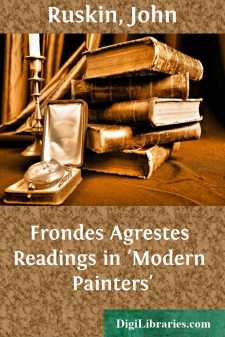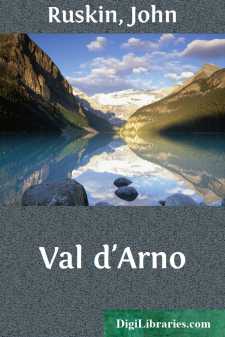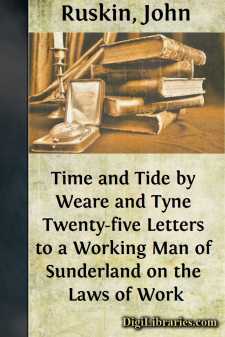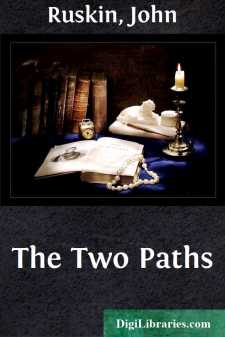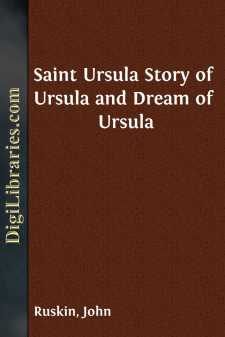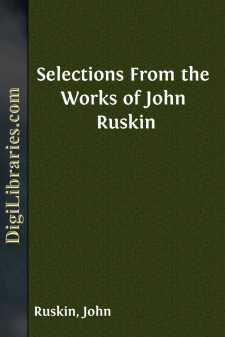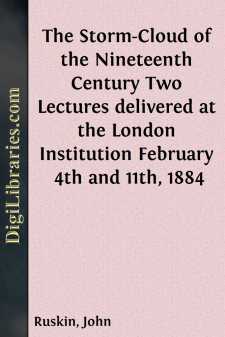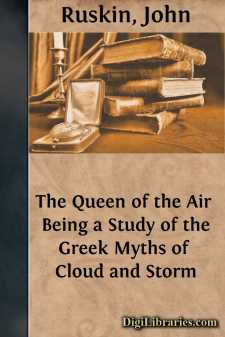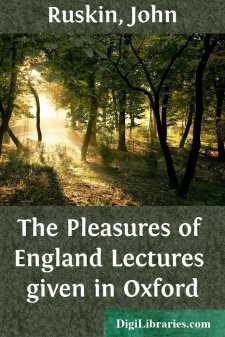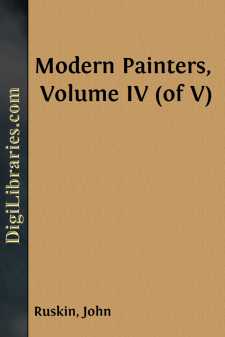Categories
- Antiques & Collectibles 13
- Architecture 36
- Art 48
- Bibles 22
- Biography & Autobiography 813
- Body, Mind & Spirit 142
- Business & Economics 28
- Children's Books 14
- Children's Fiction 11
- Computers 4
- Cooking 94
- Crafts & Hobbies 4
- Drama 346
- Education 46
- Family & Relationships 57
- Fiction 11828
- Games 19
- Gardening 17
- Health & Fitness 34
- History 1377
- House & Home 1
- Humor 147
- Juvenile Fiction 1873
- Juvenile Nonfiction 202
- Language Arts & Disciplines 88
- Law 16
- Literary Collections 686
- Literary Criticism 179
- Mathematics 13
- Medical 41
- Music 40
- Nature 179
- Non-Classifiable 1768
- Performing Arts 7
- Periodicals 1453
- Philosophy 64
- Photography 2
- Poetry 896
- Political Science 203
- Psychology 42
- Reference 154
- Religion 513
- Science 126
- Self-Help 84
- Social Science 81
- Sports & Recreation 34
- Study Aids 3
- Technology & Engineering 59
- Transportation 23
- Travel 463
- True Crime 29
John Ruskin
John Ruskin was a prominent 19th-century English writer, art critic, and social thinker known for his influential works on art, architecture, and society. His notable works include "Modern Painters," where he defended the work of J.M.W. Turner, and "The Stones of Venice," which analyzed Venetian art and architecture. Ruskin's ideas on social justice and the role of art in society had a profound impact on the Victorian era and beyond, inspiring movements such as the Arts and Crafts Movement.
Author's Books:
Sort by:
by:
John Ruskin
SECTION I. PRINCIPLES OF ART. 1. Perfect taste is the faculty of receiving the greatest possible pleasure from those material sources which are attractive to our moral nature in its purity and perfection; but why we receive pleasure from some forms and colours, and not from others, is no more to be asked or answered than why we like sugar and dislike wormwood. 2. The temper by which right taste is...
more...
by:
John Ruskin
LECTURE I. NICHOLAS THE PISAN. 1. On this day, of this month, the 20th of October, six hundred and twenty-three years ago, the merchants and tradesmen of Florence met before the church of Santa Croce; marched through the city to the palace of their Podesta; deposed their Podesta; set over themselves, in his place, a knight belonging to an inferior city; called him "Captain of the People;"...
more...
by:
John Ruskin
LETTER I. THE TWO KINDS OF CO-OPERATION.—IN ITS HIGHEST SENSE IT IS NOT YET THOUGHT OF. Denmark Hill, February 4, 1867. My Dear Friend, 1. You have now everything I have yet published on political economy; but there are several points in these books of mine which I intended to add notes to, and it seems little likely I shall get that soon done. So I think the best way of making up for the want of...
more...
by:
John Ruskin
PREFACE. The following addresses, though spoken at different times, are intentionally connected in subject; their aim being to set one or two main principles of art in simple light before the general student, and to indicate their practical bearing on modern design. The law which it has been my effort chiefly to illustrate is the dependence of all noble design, in any kind, on the sculpture or painting...
more...
by:
John Ruskin
Fors Clavigera!—to the ignorant a stumbling-stone, to the Philistines a laughing-stock, but to the Initiate a sweet remembrance of many a happy hour passed in informal chat with the Master. The real Ruskin enthusiast has read every word of Fors, and reckons it not least among the precious treasures of the Master's pen. But it remains a fact that to the vast majority of those who have heard of...
more...
by:
John Ruskin
Introduction Two conflicting tendencies in Ruskin. It is distinctive of the nineteenth century that in its passion for criticising everything in heaven and earth it by no means spared to criticise itself. Alike in Carlyle's fulminations against its insincerity, in Arnold's nice ridicule of Philistinism, and in Ruskin's repudiation of everything modern, we detect that fine dissatisfaction...
more...
by:
John Ruskin
PREFACE. The following lectures, drawn up under the pressure of more imperative and quite otherwise directed work, contain many passages which stand in need of support, and some, I do not doubt, more or less of correction, which I always prefer to receive openly from the better knowledge of friends, after setting down my own impressions of the matter in clearness as far as they reach, than to guard...
more...
by:
John Ruskin
I. ATHENA CHALINITIS.*(Athena in the Heavens.) * "Athena the Restrainer." The name is given to her as having helpedBellerophon to bridle Pegasus, the flying cloud. LECTURE ON THE GREEK MYTHS OF STORM, GIVEN (PARTLY) IN UNIVERSITY COLLEGE, LONDON, MARCH 9, 1869. 1. I will not ask your pardon for endeavoring to interest you in the subject of Greek Mythology; but I must ask your permission to...
more...
by:
John Ruskin
LECTURE I. Bertha to Osburga. In the short review of the present state of English Art, given you last year, I left necessarily many points untouched, and others unexplained. The seventh lecture, which I did not think it necessary to read aloud, furnished you with some of the corrective statements of which, whether spoken or not, it was extremely desirable that you should estimate the balancing weight....
more...
by:
John Ruskin
PREFACE. I was in hopes that this volume might have gone its way without preface; but as I look over the sheets, I find in them various fallings short of old purposes which require a word of explanation. Of which shortcomings, the chief is the want of reference to the landscape of the Poussins and Salvator; my original intention having been to give various examples of their mountain-drawing, that it...
more...


